2.16 “In the shadow of Zha'dum”


Mr. Morden is back on Babylon 5, and he has information for Londo. Sheridan is looking through the crew roster of the
Icarus, the ship on which his wife died, when Garibaldi recognises Morden's face there. But everyone is supposed to have died in the crash. How could this one man be still alive when everyone else is dead? Sheridan sets out to find out all he can about the mysterious Mr. Morden. When he learns that the man is still on the station he has him taken into custody and begins to interrogate him. A representative from the newly-formed Ministry of Peace visits Talia, and asks her to help him talk to the station staff about some new initiatives that are being planned.
Seeing he is dead on his feet, Ivanova relieves Franklin temporarily of duty, tells him to get some sleep and something to eat. The Ministry of Peace introduces the concept of the Nightwatch, which is supposedly to be a security system within a security system; those who join are expected to “keep an eye on things” and report back to Earth. Most laugh at the idea, but there’s fifty credits a week extra going, so there’s no shortage of volunteers. Garibaldi warns Sheridan that he is sailing close to the wind; he has not charged Morden with anything, he is holding him without cause, but Sheridan refuses to let Morden go, leading to Garibaldi’s threat to resign, and his following through on this when Sheridan does not back down.
Zack Allan is put in charge in his absence, while Vir requests an audience with Sheridan, telling him that Morden is a guest of the Centauri Republic and as such has diplomatic immunity. Londo wants him released at once. But Sheridan points out that diplomatic immunity only applies if the person has been charged with a crime, as Morden has not been. When Vir counters with the question as to why then he is being held, Sheridan fobs him off and leaves. But now the captain’s suspicions are confirmed, and he is even more fired up to find out who this guy is that, although he seems innocuous, is able to carry such influence with the Centauri that they will extend their protection to him?
Ivanova tells him she is worried that he is becoming irrational, and it is her duty to advise him that he may not be fit for duty, but he blows her off too. He tries to get Talia to scan Morden but she is prohibited from unauthorised scans. Sheridan’s contention that legally the man is dead and can’t object holds no weight with her: she knows he is playing word games, and dangerous ones. But he has a plan. He makes sure that the two pass each other in the corridor as Morden is being transferred to a cell, and the telepathic emanations from him are so overpowering that she automatically scans him. What she sees terrifies her: darkness, total and absolute. And cold. So cold. She also sees what look to be creatures, about half man height and spider or antlike, clustered around him.
Eventually, even Delenn and Kosh meet with Sheridan and tell him he must release Morden. When he refuses, they agree to tell him what they know, but warn him he will have trouble sleeping once he knows what they know. They tell him of the ancient race called The First Ones, who watched over and guided the “younger races” but then went away, far from our galaxy. Sheridan thinks he’s listening to folklore, fairytales, but Delenn tells him this is history, not fantasy. Ancient, godlike beings once raomed the galaxy and they battled a darker race known as the Shadows. They were only defeated by an alliance of races a thousand years ago, in which the First Ones fought. Kosh was one of those First Ones.
He shows Sheridan what happened to the
Icarus. They landed on and explored Zha’dum, and there they found the Shadows, who killed them rather than let them escape and carry news of their presence to the outside world. Delenn tells Sheridan that unless Morden is released the Shadows will come for him, and will realise how much their enemy knows about them. Then they will strike, before Delenn and Kosh are ready. In order to have any chance of defeating the Shadows this time, Delenn needs as much time as possible to marshall her forces. If she is compelled to act too soon, she and Kosh will have to play their hand, and at the moment it is a losing one. They are not yet ready to face the ancient enemy. Faced with this dilemma, Sheridan sees he has no option but to let Morden go, even though he now burns even more to know what happened to his wife, and is sure the man in the isolation cell knows. Before he does though he manages to tune the station’s scanners to a frequency that shows him the strange creatures Talia also saw, standing alongside Morden, as if protecting or guarding him. The Shadows Delenn spoke of. She warned him that Morden is never alone, and now he can see for himself. Torn, wanting to shout and point and draw attention to the grainy image on the monitor, he resists and lets it fade, mindful of Delenn’s prophecy, that if they move too soon they will lose, and billions will die.
When Morden has been released Sheridan goes to Garibaldi to apologise for not listening to him and asks him to take back his job, which he does. Then the captain goes to see Kosh, and asks him to help him learn how to fight the Shadows. Kosh says he will, but has a dire prediction for Sheridan. Given the Vorlon’s usual couching of subtle phrase and riddle, this one is straightforward and unambiguous: if he goes to Zha’dum, as he tells Kosh he will, he is going to die.
QUOTES
Morden: “If restoring the Centauri Republic means nothing to you, what does? What do you want?”
Vir: “I’d like to live just long enough to be there when they cut off your head and stick it on a pike, as a warning to the next ten generations that some favours come with too high a price. I would look up into your lifeless eyes and wave, like this. Can you and your associates arrange that for me, Mr. Morden?”
(Hold that thought...)
Franklin: “When a patient starts to slip away and he looks at you, his eyes grab hold of you the way a drowning man grabs hold of anything to keep from sinking. Afraid, so afraid. Then just at the last it’s as if they look past you to something else and the look on their face is like nothing you can describe. And then just as they look past you, the moment they look past you you can’t help but meet their gaze, and just for an instant you see God reflected in their eyes. Seen a lot of reflected gods today, Susan, and I’m wondering how we can keep believing in them when they’ve stopped believing in us.”
Sheridan: “Mister Garibaldi: interpreting the regulations for a senior officer can be considered an act of insubordination!”
(This is an amazingly clever line and a real nod back to season one, when Colonel Ari Ben Zayn said the same thing, word for word, to Sinclair. It shows that Sheridan is beginning to lose sight of his responsibilities as the station commander, and letting his personal feelings guide his decisions, even if they lead him down dark paths. That is a dangerous and slippery slope to begin to slide down.)
Delenn: “If this is the only way then we will give you those answers. But be warned: once you know his secret, once you know what we have known for the last three years, you will never sleep well again. Come, Captain: the greatest nightmare of our time is waiting for you.”
Delenn: “We have no other name for them. The Shadows were old when even the Ancients were young. They battled one another over and over, across a million years. The last great war was ten thousand years ago, it was the last time the Ancients walked among us. But the Shadows were only defeated, not destroyed. A thousand years ago the Shadows returned to their places of power, rebuilt them, began to stretch forth their hand. Before they could strike they were defeated by an alliance of worlds, including the Minbari, and a few remaining First Ones who had not yet passed beyond the Veil. When they had finished, the First Ones went away, all but one.”
Sheridan: “There’s still one of them left? Where?”
Delenn (indicates Kosh): “That is why Kosh can never leave his encounter suit. He would be recognised.”
Sheridan: “Recognised? By whom?”
Kosh: “Everyone.”
Delenn: “There comes a moment when each of us must pledge ourselves to something greater. You once told G’Kar that he had to choose between revenge and the good of his people. Now you must make that decision. It will be the most important decision of your life.”
Sheridan: “Stop!”
Zack: “What did you see?”
Sheridan: “Nothing. Shadows…”
Garibaldi: “What’s that?” (Pointing at Zack’s Nightwatch armband)
Zack: “What? Ah, nothin’. If Earth wants to throw its money around who I am to say no, huh? Fifty extra credits a week to walk around and do what I do anyway? Jeez! Why not?”
(But Zack, and everyone else who is so keen to take Earthgov's money for seemingly nothing, will find that there is a very dark and high price to pay for the allegiance they offer when they put on that seemingly innocuous armband).
Sheridan: “I let him go. But there’s a price tag attached. You’ve been help me so we can understand each other, I don’t want that anymore. I want you to teach me about them, how to fight them, how to beat them. Because sooner or later, I’m going to Zha’dum and I’m going to stop them.”
Kosh: “If you go to Zha’dum you will die.”
Sheridan: “Then I die. But I will not go down easily and I will not go down alone. You will teach me?”
Kosh: “Yes.”
Important Plot Arc Points
Morden
Arc Level: Red
This episode is piled high with revelations and plot twists, and now we know a lot more about the mysterious Mr. Morden than we did previously. He serves ancient, evil beings known only as the Shadows, who are timeless and immortal it would seem, and were only defeated a thousand years ago thanks to the intervention of other ancient aliens, which Delenn calls The First Ones. Morden is not alone; the Shadows follow him, cluster about him, invisible to the human eye, or any other, but they are always there. We’ve seen them before, in “Signs and portents”, when he gloated with them over having secured the services of Mollari, and we also see them here before Delenn and Kosh reveal who they are, when Talia scans Morden. We also learn that Morden was on the
Icarus, the ship that carried Sheridan’s wife to her death, along with everyone else onboard. But though that was written off as an unexplained accident, it now seems it was a cold act of callous murder. The
Icarus landed on Zha’dum, the ancient base used by the Shadows, and all its crew were killed, other than of course Morden.
There is of course a lot we still don’t know about him, may never do, but according to Earth Central he is dead, and if he’s serving the Shadows against his own people then he probably is dead, inside at least. Perhaps he was to be killed too, and at the last offered his services to the aliens like a true snivelling coward, turning traitor on his own people in return for his miserable life. Or maybe they forced him to work for them? The perpetual smile, that smirk that is always on his face, would say otherwise though: he seems quite willing and even happy to be their servant, knowing nobody can or would dare touch him, even if they don’t quite know why. One thing is certain: he will never turn Vir the way he has turned Londo. Vir makes this clear when he tells Morden very candidly and graphically what he wants. Remember this when we get into season five.
The Shadows
Arc Level: Red
Now at last we know who the “dark enemy” Delenn spoke of before she underwent her transformation is. An ancient race who have battled with another, across the millennia, and who were only defeated last time by an alliance of races. We see a scene, taken from season one’s closer, where Delenn asks Lennier if he related her message to Kosh, and the aide replies yes, and that the answer Kosh gave was in the affirmative. A lot has hung on what that question was, and now we learn it was “Have the Shadows returned to Zha’dum?” Now that Delenn knows they have, that the ancient enemy is consolidating and gathering its forces, she knows there is no time to waste. She cannot wait for approval from the Grey Council which, if it came at all, would only come after days or weeks of heated debate. She goes ahead and makes an enemy of herself to many powerful Minbari.
But it was necessary. Without her change, Delenn would not have been able to see as the humans do, and be able to guide Sheridan towards the revelation that she and Kosh make here. Of course, it’s still too early. She had not intended the captain to learn this information so soon, but with Morden imprisoned and the Shadows getting more agitated, she has to move sooner than she expected. Now the secret is out, and Sheridan must deal with it. We can also see now the true extent of the dark, cold star Londo has hitched his wagon to. This association with Morden and the Shadows --- though he does not know about the latter, and yet he must have some idea that the enigmatic man has powerful allies --- will bring Mollari and the Centauri Republic into direct confrontation with Sheridan and his people, as the two clash head-on. It may be that Londo will find that he has after all backed the wrong horse, and should have listened to Vir.
Zha’dum
Arc Level: Red
The ancient homebase of the Shadows, this planet has been hinted at by the likes of G’Kar and even Catherine Sakai in season one, and is noted in the video report of the “crash” of the
Icarus. But now we know its significance, and it seems that Sheridan had better stay away from this dark place, as Kosh has warned him that death awaits him there, and for the Vorlon to be so literal and unenigmatic, he must be telling the truth, and an important truth at that. Only one problem: John Sheridan intends to go there, even knowing the fate he must encounter there.
Zack Rising
We can see Zack come into his own in this episode. Even before Garibaldi temporarily resigns in protest at the illegal imprisonment of Morden, Zack is in the episode from the very start. It’s he who passes Morden in, he who stops him and he who brings him to the captain. When he has to take over for Garibaldi he makes it clear that he is concerned about the chief’s sudden leave of absence, as Sheridan does not tell him the whole story, and you can see he considers Garibaldi a friend, and is uncomfortable taking his job, even if only for a short while.
But we also see him get involved with the newly formed Nightwatch. This seemingly innocuous entity will soon turn out to be anything but. As it is, Zack sneered at the idea but when the extra money was mentioned he figured why not? He thinks he’s making easy money. But membership in the Nightwatch will very shortly show itself to be anything but easy, and the money will be the least of his worries. The captain also takes him into his confidence, telling him the old story about Coventry during World War II, and even Zack is taken aback by Sheridan’s duplicity when he arranges for Morden and Talia’s paths to cross. It’s clear he’s a man of principles, which while it will stand him in good stead on Babylon 5 and with Sheridan, will be more of a liability when it comes to dealing with the Ministry of Peace’s new pet project.
Good guys sometimes wear black
One of the strengths of Babylon 5, only copied really by Deep Space Nine and later Battlestar Galactica and its ilk, is that the heroes are not squeaky-clean. Like Sisko in DS9, they sometimes resort to questionable tactics in order to get the job done. In my opinion, this makes the series more genuine, more honest and more real. The point being that sometimes the choices they make are shocking, and often can’t really be excused. In this section I’ll be detailing scenes and events when the characters make that sudden left turn, surprising us that they can play the dark card when needed.
Here Sheridan arrests Morden without any cause at all, holds him without charge and even goes so far as to gloat that since technically he is dead he has no rights, and Sheridan can do what he likes with him. This interrogation of his will uncomfortably parallel another, later in season four, when we will have to ask ourselves is this guy just doing his job, is he evil or is he trying to achieve an end, no matter the means? Nixon once famously said, “when the president does it it’s no longer illegal.” That was and is bulls
hit of course, but scenes like this one, and others later, make us wonder if Sheridan and his comrades do really make up the rules as they go along, or just obey them or work within them when it suits them. Are they really the good guys, or just different sides of the same coin? In the end he pulls back from the brink, but not because he realises what he’s doing is wrong. In fact, the choice has to be spelled out for him, and linked back to the same one he gave G’Kar when he wanted to kill Mollari earlier. It’s only expediency and the greater good that stops Sheridan from finishing what he started, so in many ways you can’t really give him too many points for that. Perhaps the only thing in this instance in which you can praise him is the fact that he manages to see the Shadows, sees that what Delenn and Kosh have told him is real, and decides to keep quiet about it, keeping their secret.














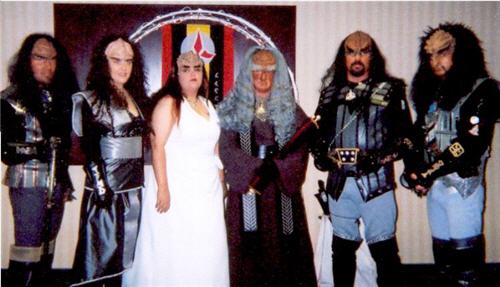


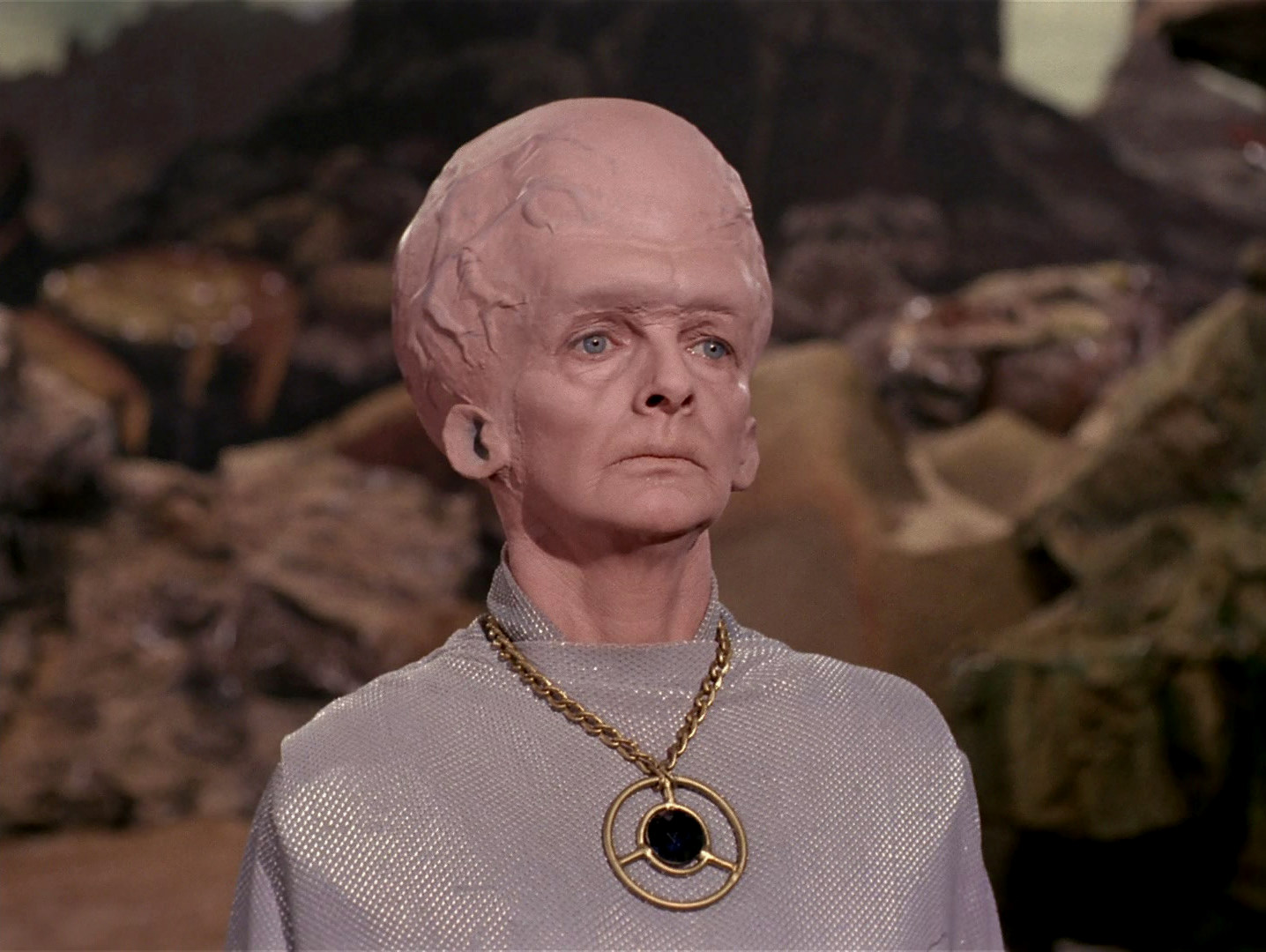

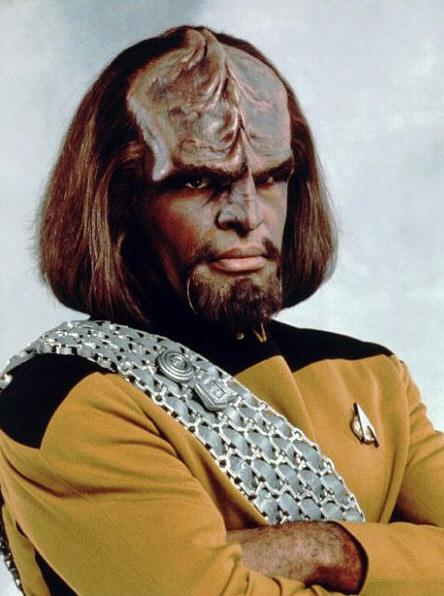

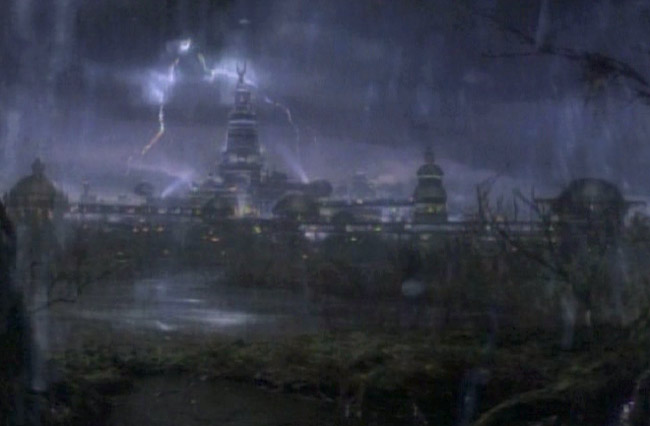
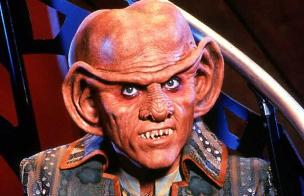




 Linear Mode
Linear Mode
